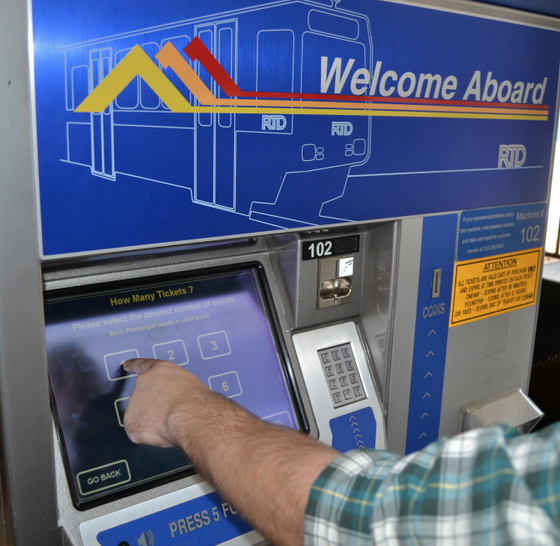Raising EcoPass Cost Without Good Data Could Hurt Ridership, Accessibility

Business owners and transit advocates are upset with RTD for a proposal that would raise the price of the transit agency’s business EcoPass, a heavily discounted employer-sponsored fare card, by about 18.3 percent. Businesses don’t like the hike because it hurts their bottom line, but the real concern is that it could hurt accessibility and dwindle ridership.
The increase is supposed to reflect the general fare hikes planned for next year, and no one has a problem with that. But opponents say the math used to get to 18 percent doesn’t add up [PDF]. Scott Reed, an RTD spokesperson, said that’s because survey data suggests that the EcoPass is underpriced. An RTD analysis [PDF] “suggested” that the average EcoPass user is financially better off than most riders, yet pays less. The 18 percent hike would ostensibly balance the scales.
Subsidizing white-collar riders is not RTD’s job. Making transit broadly accessible is. Problem is, advocates and business owners agree that RTD’s numbers are based on sketchy data — the preferred staff euphemism is “not sufficiently robust” — because the agency lacks modern smart card technology. So there’s no guarantee that high-income riders will subsidize low-income riders.
Some people think the agency’s formula to justify the price hike is bunk, too. Rather than looking at ridership and fare costs in the aggregate, RTD focuses on the cost to individual riders. Raising the price could decrease ridership, whereas getting the EcoPass into the hands of more low-wage workers and low-income communities would induce ridership, subsidizing the entire system. It’s better to have a bus with 30 people on it, even if you’re only getting 90 percent of the revenue per person, than a bus that has 10 people, getting 100 percent of the revenue per person.
EcoPass users are concentrated in downtown Denver, Boulder, and at Denver International Airport, indicating that RTD is missing out on local riders who work and live in less wealthy areas. Proactively recruiting those riders makes more sense than making EcoPass less attractive to the ones already using it. Conversations about targeting low-income communities and businesses with low-wage workers have begun, but RTD hasn’t allowed enough time for them to play out. The 18 percent increase is being rammed through to ensure that new contracts are ready by next year.
It’s counterintuitive, but raising fares for the business EcoPass could hinder accessibility to transit for all users in the long run. RTD’s board is poised to pass the hike on Tuesday, but without good data and a sufficient discussion, it will be a blind vote.


